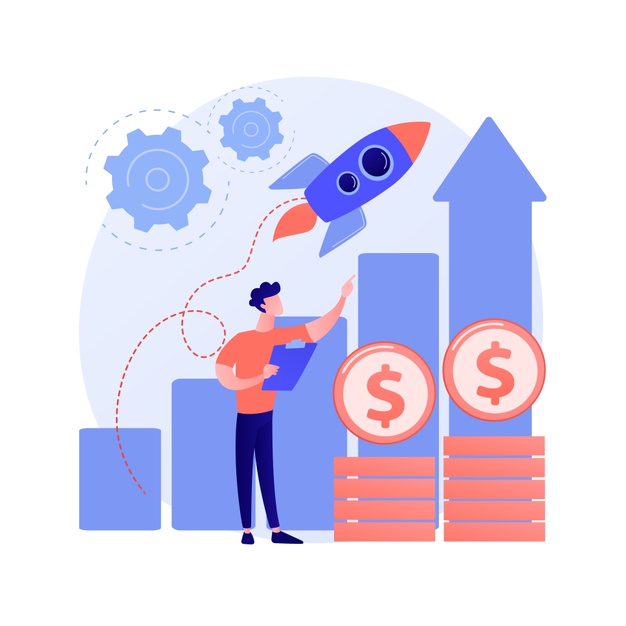Currently, over 30% of global companies use AI in at least one sales process. AI algorithms improve the revenue forecasting of an organization, along with CLV and a host of other sales-related metrics.
AI is an effective solution since there is a large amount of incoming and outgoing data: today, it is being implemented in the form of conversational intelligence, predictive analytics, generating useful recommendations for reactivating prospects and for optimizing customer lifecycle, creating sell signals, etc.
AI is constantly evolving and machine learning opens up new perspectives. Now we will tell you about 7 main ways AI is positively influencing sales.
1. Conversational intelligence: getting the most valuable insights

Everyday conversations with prospects contain valuable insights for growing the company’s sales; they can indicate customers’ pain points, their interests, general objections, constructive suggestions, main competitors, and many more. It is simply physically impossible to quickly analyze all this data and organize it in a convenient form.
Conversation intelligence (or simply “CI”) is a brand-new class of sales technology. By recording, transcribing, and analyzing sales conversations, delivers crucial AI-driven insights to the sales reps. By implementing this technology, sales teams receive an almost endless source of important information without wasting time that could be better spent selling!
There are plenty of CI apps, such as, for example, Gong, Chorus, or SalesLoft. But if you need a truly one-size-fits-all solution, then you should pay attention to Revenue Grid. It is the #1 AI-powered guided-selling platform that nudges sales teams with consistent and detailed guidance to win more deals faster.
CI is the newest addition to the platform’s features set (Revenue Engage, Revenue Inbox (Salesforce Email Integration), and Revenue Guide) and is instantly available to all the platform’s customers. You can find more information on https://revenuegrid.com/revenueinbox/.
CI by Revenue Grid records and analyzes all customer calls made in GoToMeeting and Zoom apps, allowing your sales teams to get unique insights from the conversations and meetings, and helps to generate proper sales signals based on these insights.
The conversational Intelligence feature allows sales managers to implement best practices in conversation performance across the entire company. Sales reps get the ability to perform a self-assessment of the calls they make and improve the conversational skills to win more deals.
2. Predicting sales success

According to Aberdeen Group studies, companies that boast sales forecasts are 10% more likely to grow their revenue year-over-year and 7% more likely to hit quota.
AI helps organizations to effectively complete the following tasks:
- enhancing lead scoring;
- improving sales closing rates;
- maximizing customer lifetime values;
- improving retention rates and so on.
Using analytics Intelligence, AI combines data analysis, statistics, and analytical modeling to graphically predict future business outcomes. With the rise of machine learning and big data, digital marketing capabilities have increased, and now professionals can analyze their performance more accurately and focus on specific areas of digital strategies.
Predictive analytics helps sales teams attract leads with higher purchasing potential, build campaigns based on demographic and behavioral data, and increase profits through sales and cross-selling while having the ability to analyze detailed insights into customer preferences.
3. Using AI and smart segmentation to identify the target audience

Today, AI and predictive analytics allow marketers to identify the best audience much more quickly and accurately, as well as make it much easier to find new audience segments that share similar attributes.
This allows to deliver maximally personalized offers and create unique connections.
Also, Ai helps marketers predict what actions a specific target audience will take upon receiving a certain message and customize it for the best results.
Leveraging AI for more effective audience segmentation includes:
- taking stock of the main audience: understanding who these people are and what things they are interested in;
- using Artificial Intelligence to analyze the audience deeper and reveal new personas;
- treating them as sub-segments, and delivering to them uniquely, personalized messages.
4. Generating recommendations for reactivating prospects

AI-powered loyalty control and customer retention is a tremendous opportunity for marketers to create value for customers and stakeholders.
This is especially true for retailers and manufacturers, whose platforms are based on direct interaction with consumers, as well as companies with advanced customer interaction programs. By combining data from multiple sources, companies can gain insights into how to get inactive customers back.
The main thing that needs to be done to successfully reactivate inactive customers is to identify them based on a set of certain criteria. The selection criteria can be different: the number of purchases for a certain period, opening letters, etc.
AI selects the perfect combination of traits to identify these customers, allowing you to conduct sniper campaigns.
5. Generating sell signals

With the onset of the digital age, marketers have gained a huge advantage — the ability to receive instant feedback in communication with prospects. This allows marketers to analyze their actions and keep the prospects engaged.
Predictive intelligence tools help to gather all incoming data in the most convenient form in one place for its further analysis. It can be:
- purchase histories;
- firmographics;
- seasonal buying patterns;
- purchase sequence patterns;
- sales logs;
- customers’ website activities;
- viewing similar products;
- reading reviews;
- questions in the chat;
- customer reaction to discounts and much more.
This AI feature allows you to seize the right moment to sell based on a number of metrics.
6. Creating recommendations for customer lifecycle optimization

The general goal of every organization is to create a powerful loyalty among its customers. For that, companies need to clearly understand the stages of the customer lifecycle and take measures to deliver a personalized engaging experience to them.
But it’s impossible to do it manually since it takes a huge amount of time and effort. And that’s where Ai comes into play: companies use AI’s infinite abilities in various stages of the customer lifecycle to get optimum results. AI helps companies to target their potential customers, create a personalized experience for them, and retain them.
Studies show that today, 22% of marketers are using AI-based software while the other 57% are planning to use it in the next 2 years.
7. Generating personalized content

Organizations that generate useful content win the huge engagement, conversion, and customer loyalty. But today, with all that visitors landing on the websites for just a moment, no one knows exactly what content a certain potential customer wants to see.
AI content personalization software serves up the correct content for individual customers at the right moment, based on the offers they were interested in before.
Advanced AI-powered software extracts helpful insights from huge amounts of data, and creates forecasts on what type of content a returning website visitor is most likely to engage with, based on his historical content consumption.
 Imagup General Magazine 2024
Imagup General Magazine 2024



